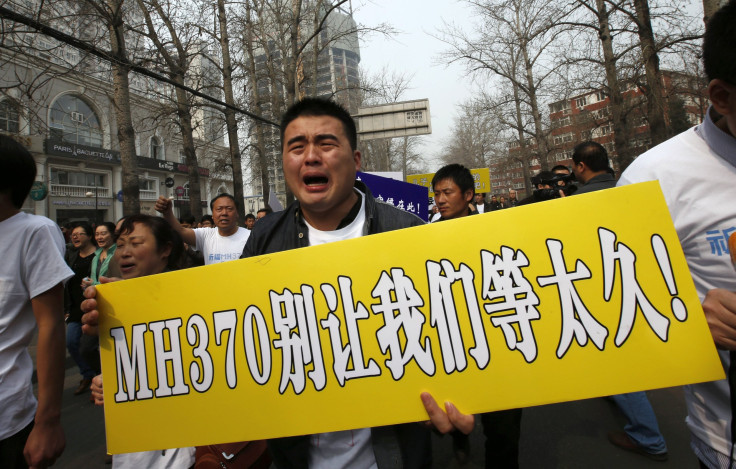Southeast Asian Countries Fearful China Will Use Missing Flight MH370 As Excuse To Up Presence In South China Sea

The tragic crash of Malaysian Airlines Flight 370 appears to have reinforced regional tensions in the South China Sea, where China and several Southeast Asian nations have long sparred over competing territorial claims.
From the Philippines to Vietnam, officials are growing anxious that China may be exploiting the disaster as an opportunity to solidify its presence on the waters, using the search for the wreckage as pretext to stick around in contested waters.
“I don’t think any ships that China has deployed in the South China Sea, ostensibly in the name of the search, are going home any time soon,” said Ray Kwong, a senior adviser to the US-China Institute at the University of Southern California, in an email to International Business Times.
China has long been involved in territorial disputes with several of its neighbors in Southeast Asia, including Vietnam, Brunei, Malaysia and the Philippines. The MH370 incident, in particular, due to the international attention it has received as well as the material interest of both Malaysia and China, has sparked the interest of other countries in the region.
“There is a perception among ASEAN (Association of Southeast Asian Nations) member-states that the Chinese will use the event to exploit bilateral tensions between ASEAN nations -- for instance by criticizing the government performance of specific leaders,” Christian Lewis, an expert on Southeast Asia for the Eurasia Group, a political and economic consultancy, told International Business Times.
The Philippines is set to file a written pleading against Beijing regarding the two countries’ dispute in the South China Sea at the end of the month before an arbitral tribunal backed by the United Nations, the Rappler, a Filipino news website, reported on Tuesday.
But the Philippines is quite alone in its efforts, as it is unlikely that the Southeast Asian countries will band together against Chinese interest in the region, which means in effect, China could potentially do anything it wants in the region and there will be little the ASEAN member-states can do.
“Each ASEAN government except [the Philippines] depends too heavily on the domestic benefits derived from tight trade relations with China to get serious about a cohesive ASEAN security policy,” Lewis said.
And the Philippines on its own cannot achieve much. Already Beijing has thrown its bulk around and ignored the Manila’s attempt to resolve the territorial dispute at an international tribunal, leaving the Philippines to bring a one-sided complaint.
Another reason that makes any unification of security policy against China unlikely is that “many of the countries involved in the joint international search effort happen to be in territorial disputes not only with China, but with each other,” according to Kwong.
“That doesn’t lend itself to a whole lot of cooperation and sharing of information,” Kwong said, adding that at least part of China’s aggressive and very vocal stance in reaction to the MH370 incident is due to its desire to position itself globally as the kingpin in the region.
© Copyright IBTimes 2024. All rights reserved.




















